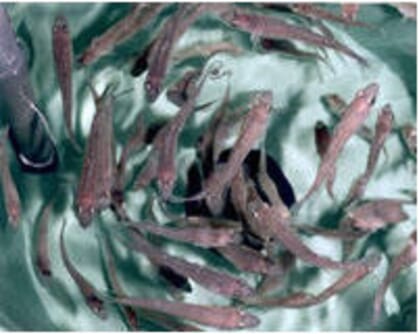The four-year project is financed by the Research Council of Norway through the programme Sustainable Innovation in Food and Bio-Based Industries (BIONÆR).
Live storage makes it possible for the European market to gain access to branded 'Premium Fresh Cod' even outside the winter fishing season. Minutes after the fish are slaughtered in Norway, they are placed on trucks that will ship them out to the market. The live-stored fish is therefore extremely fresh when it appears at fish counters and on dinner plates in Continental Europe. Nofima is interested in whether grocery store customers and restaurant guests appreciate this quality and want to find out how this fish is marketed by distributors and purchasers.

In summer, researchers from Nofima and the School of Business and Economics at the Arctic University of Norway in Tromsø travelled to Spain to speak with consumers, clients, distributors, kitchen managers and purchasers about accessing Norwegian cod in the summer.
“We would like to explore the perceptions that exist in the market: we want to know more about what differentiates ‘live fish’ from other cod. Which qualities are valued? And does emphasising quality mean that one is willing to pay more for this type of fish out of season? Based on the answers we get, we will be able to give feedback to the Norwegian industry about what the market considers important,” says Nofima’s Senior Researcher Geir Sogn-Grundvåg, who leads the CATCH project.
If the market is willing, Norwegian exporters can perhaps build up a client portfolio that is guaranteed a delivery of a known quantity of live-stored Norwegian cod outside the traditional cod season.
Eight industry actors and representatives from five universities took part in the research project on the live storage of cod. One of the participating universities is UiT—the Arctic University of Norway in Tromsø. Professor Svein Ottar Olsen wants to cooperate with Spanish universities in Murcia and La Coruña to map consumers’ preferences, expectations, experience of quality and willingness to pay for fresh Norwegian cod.
“With access to clients in Spain, we are able to both undertake consumer testing and collect data on consumer reactions,” says Olsen.
It is not just pure, white fillets that are offered to clients in Spain. According to Professor Olsen, the Spanish are innovative in developing new and contemporary products and packaging.
“They add value to products and thereby develop the project range with the help of spices and sauces,” he explains.
The researchers are excited to see consumers’ reactions now that they will gather data on consumers’ experiences of live-stored Norwegian cod in the summer heat of Spain.
“The benefits of live storage are many: access, quality and increased shelf life, because the fish is fresh; less waste, because all the fish are good quality; and streamlined production, because the raw materials are always available. Now it will be interesting to see how much of this knowledge on quality accompanies the fish to Spanish consumers, and whether this affects consumers’ choices and preferences,” says Sogn-Grundvåg.



